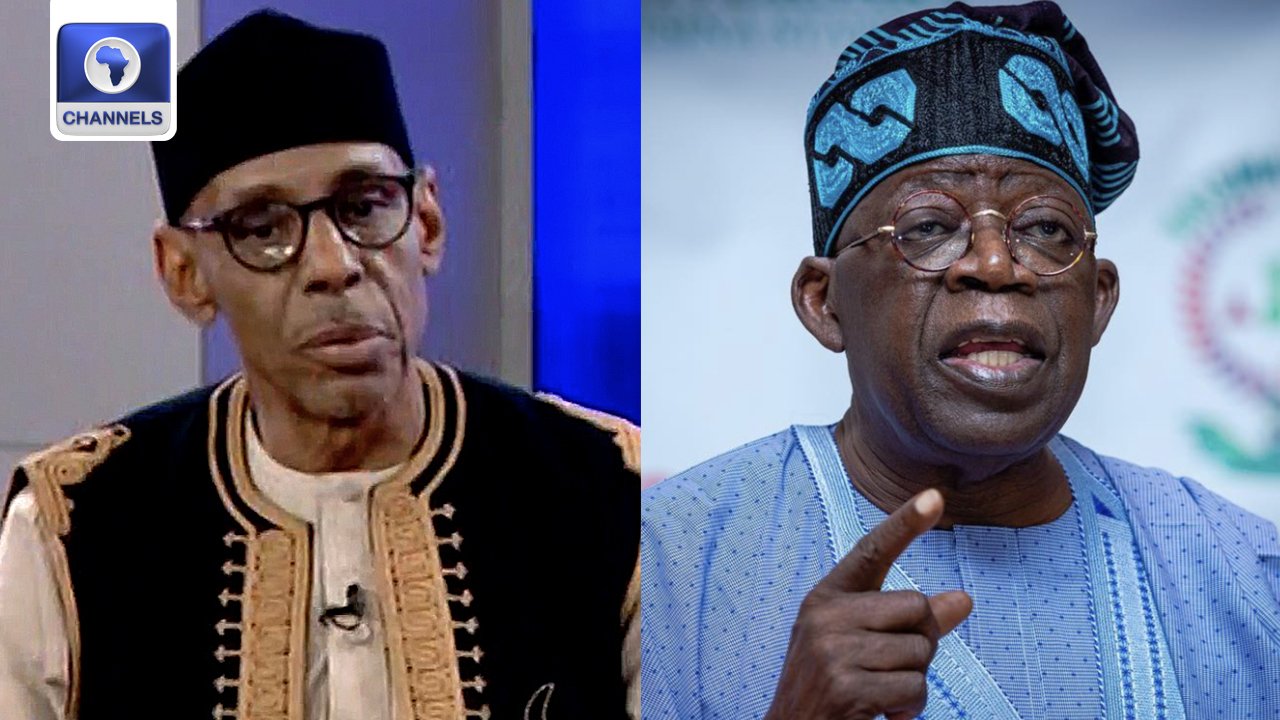
“Nigeria Deserves Better”: Baba-Ahmed Slams Tinubu Govt Over Decline In Citizens’ Welfare

In a piercing critique that underscores growing frustration with Nigeria's political leadership, Hakeem Baba-Ahmed, former spokesman of the Northern Elders Forum (NEF) and one-time political adviser to President Bola Ahmed Tinubu, has declared that the current administration has failed to significantly improve the quality of life for ordinary Nigerians. Speaking candidly during a televised interview on Channels TV’s Political Paradigm, Baba-Ahmed drew a bleak picture of national governance, describing the post-1999 leadership landscape as one of steady and painful decline.
He asserted that despite the hope many attached to Tinubu’s ascension to power, especially following what he termed the “rudderless governance” of former President Muhammadu Buhari, the current government has not only fallen short of expectations but may have worsened the living conditions of the average Nigerian. According to Baba-Ahmed, the Tinubu administration promised change but has delivered disappointment, with policy decisions like the removal of petrol subsidy deepening the economic hardship faced by citizens across the country.
While acknowledging that reversing the subsidy removal may be unrealistic at this point, Baba-Ahmed emphasized that the government’s failure lies not just in its economic policies but in how those policies are implemented and managed. He argued that funds saved from subsidy removal—expected to benefit Nigerians—have instead vanished into the void of poor accountability and rampant corruption, particularly at the state and local government levels. In his words, “So much waste, so much abuse of resources and corruption going on.”
He challenged Tinubu to take decisive actions against corruption, especially within his own party, the All Progressives Congress (APC), urging the president to wield his constitutional authority to demand transparency and accountability from governors and local government officials who receive federal allocations. Baba-Ahmed’s tone reflected deep disillusionment with the structure of governance, highlighting a disconnect between those in power and the citizens they claim to serve.
His critique comes amid rising economic strain in Nigeria, where inflation has climbed, food prices have soared, and millions continue to struggle with joblessness and insecurity. For many Nigerians, the past two years under Tinubu’s rule have been marked by dwindling purchasing power and deteriorating public services, despite repeated government assurances of reforms and progress.
Baba-Ahmed lamented that Nigerian democracy has failed to deliver on its fundamental promise: leadership that protects citizens’ interests and manages national resources for collective progress. “Nigeria is a tragedy,” he declared, drawing attention to what he sees as a pattern of selfish and incompetent leadership stretching across decades. According to him, the problem isn’t the absence of elections or institutions but the caliber of people who ascend to power—and their refusal to serve in the public interest.
Tracing Nigeria’s political trajectory since the return to civilian rule in 1999, Baba-Ahmed offered a scathing retrospective of the country’s past presidents. He gave a nod to the early years of President Olusegun Obasanjo, calling them relatively effective but ultimately marred by the ex-general’s infamous third-term bid. Umaru Musa Yar’adua, he noted, brought a brief breath of fresh air with his vision and youthfulness, but his untimely death cut short any hopes of genuine reform.
President Goodluck Jonathan, according to Baba-Ahmed, “ran the country aground,” prompting the NEF and others to support his ouster in hopes of installing a more competent alternative. That alternative, he admitted with a tone of bitter irony, turned out to be Muhammadu Buhari, under whom the country, in Baba-Ahmed’s words, saw “no governance at all.”
By comparison, he argues, Tinubu’s administration has continued the descent. Recalling Tinubu’s infamous pre-election assertion—“It’s my turn”—Baba-Ahmed suggested that such entitlement was an early red flag. Two years into his tenure, the former adviser believes Tinubu’s record has not justified the promise of transformational leadership. “They will tell you they are doing great with all the World Bank statistics, all the international ratings and everything,” he said, “but that’s not the measure of a government; you measure by how the people live.”
Baba-Ahmed’s remarks have resonated with many Nigerians who feel increasingly alienated from the political elite. The recurring themes of failed promises, mismanagement of public funds, and deteriorating security continue to dominate conversations across the country. With basic necessities such as power, healthcare, and education still in crisis, the sense of betrayal among citizens has reached a boiling point.
His criticism also served as a warning about the broader dangers to Nigerian democracy. By reducing leadership to self-enrichment rather than public service, Baba-Ahmed warned, the nation risks becoming a democracy in name only—where elections happen but accountability remains absent. “If you have this kind of people as leaders,” he stated grimly, “put them in the best country, they will do exactly what they are doing now.”
In a political climate where opposition voices are often sidelined or ignored, Baba-Ahmed’s condemnation from within the establishment carries notable weight. It suggests that discontent is not just confined to opposition parties or civil society groups but is also brewing among insiders who once supported or participated in shaping the current administration.
The former NEF spokesman's message was clear: Nigeria’s problem is not merely economic or structural—it is moral. A leadership class addicted to privilege and immune to consequences cannot build a country where equity, justice, and development thrive. For any real change to occur, he argued, the political culture itself must undergo a radical transformation—one that prioritizes competence, compassion, and accountability.
As 2025 unfolds with more Nigerians slipping below the poverty line and confidence in democratic institutions waning, Baba-Ahmed’s words ring as both an indictment and a call to action. The people, he implied, must demand more—not just during elections but in the day-to-day conduct of those entrusted with power. Only then, he believes, can Nigeria chart a course away from tragedy and toward the promise of genuine national renewal.


